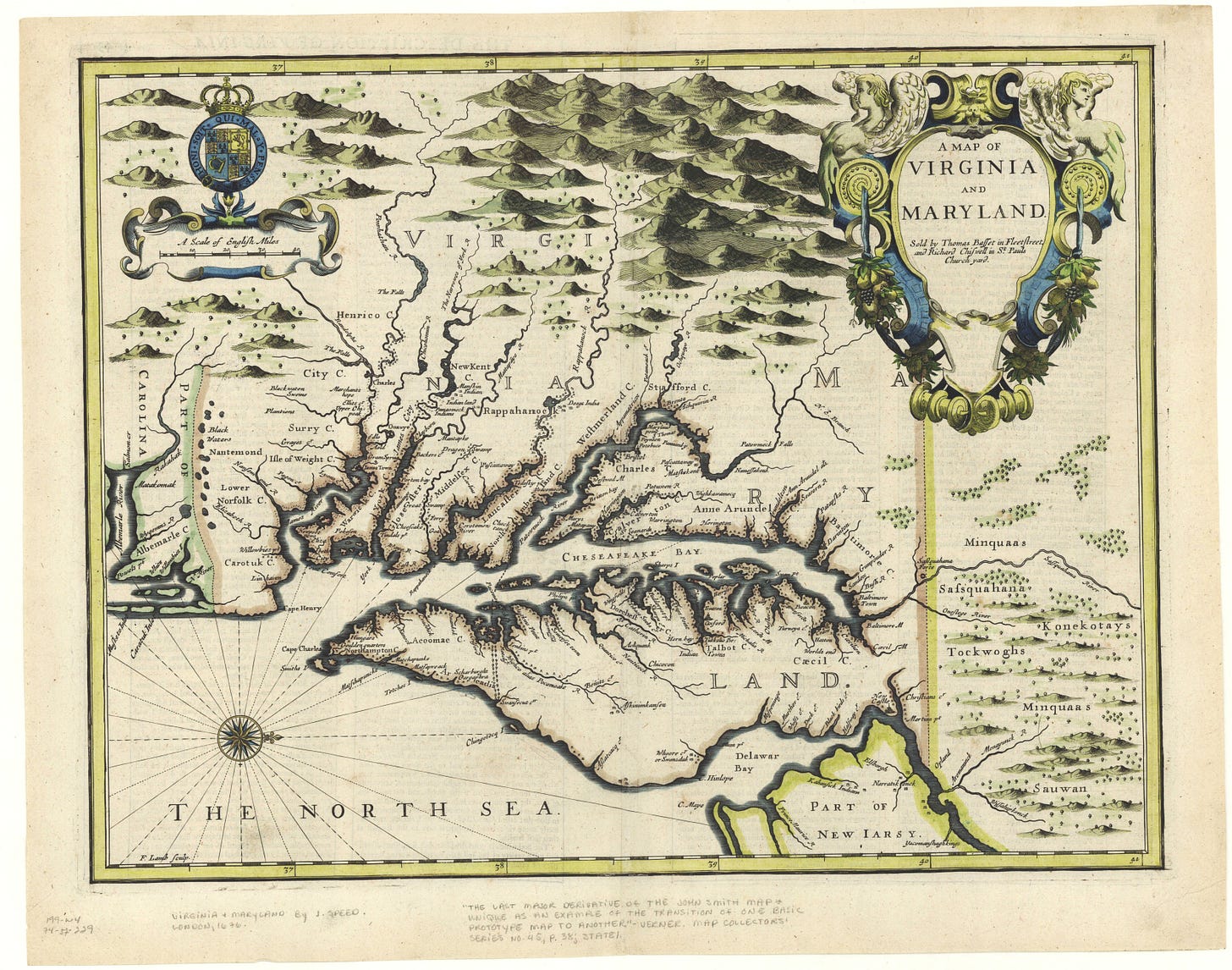
Did you know that as members of a religious order, Jesuits - who draw on the rich tradition of Ignatian spirituality - take three vows: of poverty, chastity and obedience — and a fourth vow of obedience specifically in regard to worldwide mission?
We can’t overstate the impact of the Maryland Jesuit missions of the pre-colonial and British America colonial days in laying the foundation of the Church in this country.
It was a herculean effort by the order – and while much has been written and documented (I especially recommend the three resources at the end of this post) it would be an extraordinary task to chronicle the experience of every brother and priest who landed in Maryland in the seventeenth and eighteenth centuries, but if we isolate the experience - even brief experience - of one, it will give us an idea of the whole.
Here are portions of three letters1 - each written one year apart - by Lincolnshire native Joseph Mosley (1731-1787) to his sister back in England. Mosley entered the Jesuits in 1748 and volunteered for the Maryland mission ten years later.
Here we get a glimpse of the great sacrifice and harsh conditions they endured while embracing the call to build up the Church in “the remotest corner of the world.”
Sept. 8, 1758 Dear Sister, …I arrived safe and sound in Maryland on the 19th of June, after a long and tedious voyage of ten weeks. I find here business enough for my way of trade - I’ve care of above fifteen hundred souls - we stand in need of laborers, if more had zeal enough to come to our assistance - for myself, I can say that I preferred this place to any I knew, and I hope to spend my life and whole strength, I think it is the happiest place in the whole world, and I also find it so for one of our calling. No prince in his court can have more satisfaction and enjoy himself more than I do in instructing those under my charge. I am daily on horseback, visiting the sick, comforting the infirm, strengthening the pusillanimous, &c. And I enjoy my health as well, as if I were breathing my own native air….
Sep. 9, 1759 Dear Sister, …The country is best laid out for trade of any in the world. The rivers are wide and spacious … Our horses are almost all natural pacers, they will easily go, as I know it by experience, a whole day without food, at the rate of 7, 8, 9 miles an hour at a constant pace which is a great comfort to us in our way of life. The buildings in this country are very poor and insignificant, all only one story, commonly all the building made of wood plaster within … the poorer people have nothing but a few boards nailed together without plastering, or any brick about it…. I am here content as a king and never shall desire a change if I can keep my health and be of service. I allow our fatigues are very great, our journeys very long, our rides constant and extensive. We have many to attend, and few to attend them. I often ride about 300 miles a week, and never a week but I ride about 150, or 200, and our way of living, we ride almost as much by night as by day, in all weathers, in heats, cold, rain, frost or snow. Several may think the colds, rains &c, to be worst to ride, but I think to ride in the heats far surpasses all, both for man and horse, but as I’ve told you, our horses are well-gaited and everlasters….
Oct. 5, 1760 Dear Sister, …I can’t say that my health is at present as good as it has been, for a ride of 52 miles in the rain, and another the same length in a warm day all in the sun, cast me into violent fevers attended with constant vomiting: but thanks be to God, I am upon the recovering hand…. This year has gone very hard on us: the rains have caused a great many diseases, and to us a great many rides. Our hands are few, weak, and in great decay. Our rides are often twice a day, yet I often in a week ride between 50 & 60 miles a day. It’s true, our horses in this country go so easy that a ride of 50 miles, perhaps, won’t tire a man so much as 20 or 30 with your horses in England, yet they are so frequent that it is enough to break the strongest constitution …. I recommend myself to all your good prayers in this life I lead, banished into the remotest corner of the world ….
Many of Fr. Mosley’s letters and extracts from his diary can be found at the link below:
https://www.jstor.org/stable/44207979
If you’re interested in learning more look for the footnoted book below, and the 1890 book by Treacy, “Old Catholic Maryland and its Jesuit Missionaries,” found at Treacy
Found in American Jesuit Spirituality: The Maryland Tradition, 1634-1900, ed. by Robert Curran, S.J., pub by Paulist Press, 1988.



